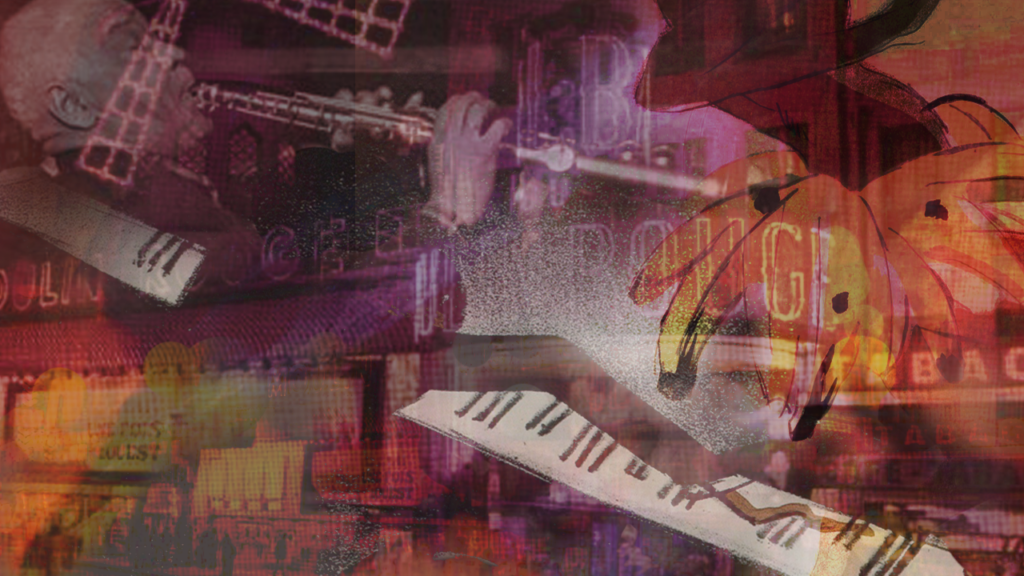
Addressing high school students in Sioux Falls, South Dakota, a few weeks ago, former US Ambassador to Russia John Beyrle said that the US State Department faces “an existential crisis.”
Speaking on my latest NPR “More than Music” feature, “What’s an Orchestra For?,” he further comments: “Soft power” – the use of music and education as an instrument of foreign policy – “still exists. The question is whether we as a country understand that it, too, makes America great. And I am afraid that President Trump does not understand that well enough, that his view of the world is ‘might makes right.’ I think that’s a potentially cataclysmic mistake. I fear that we will compromise our ability to influence other countries, to pursue interests that dovetail with our own national interests.” Beyrle also described a destructive “climate of fear” within the government. You can hear it all here.
Ambassador Beyrle was visiting South Dakota for a week-long “New World Encounters” festival exploring jazz as an instrument of cultural diplomacy. The participants included the ebullient French pianist Jean-Efflam Bavouzet, who delivered a lecture/recital on “Ravel and Jazz” at three universities two hours apart. The culminating orchestral concert included narration and a continuous visual track. My radio program showcases the SDSO festival (part of the NEH-funded “Music Unwound” consortium that I direct) as an exemplary exercise in how orchestras can (and should) proactively foster mutual understanding throughout a community of patrons and students.
SDSO Music Director Delta David Gier, who personally superintends the orchestra’s thematic festivals, says that his profession is undergoing an overdue “metamorphosis” — that the template of the “jet-setting maestro,” with multiple jobs and no genuine home base, is receding. On NPR, I comment:
“The British music critic Richard Morrison, in a recent piece for BBC Music Magazine, wrote: ‘The age of the jet-setting maestro is over, or should be – for environmental, financial, social and indeed musical reasons.’ Morrison was responding to the Chicago Symphony’s choice for its next music director: Klaus Makela, who is not yet 30 years old and will concurrently take over Amsterdam’s Concertgebouw Orchestra. A veteran music critic of my acquaintance called that “the stupidest decision” he’d seen in decades on the job.
I continue: “The template in question – now a dysfunction crippling classical music internationally – originated with the late Ronald Wilford of Columbia Artists Management. Wilford realized he could maximize the income and prestige of his marquis conductors by stationing them on multiple podiums, preferably an ocean apart. This strategy was commercial – it had nothing to do with making better music. In Chicago itself, the orchestra’s first two, formative music directors – Theodore Thomas and Frederick Stock – were civic fixtures whose combined tenure lasted half a century. Concurrently, Boston’s Serge Koussevitzky and Philadelphia’s Leopold Stokowski famously pushed the artistic envelope. It would never remotely have occurred to any of them to seek additional employment elsewhere.”
In addition to Beyrle, Bavouzet, and Gier, participants in the NPR show include composer John Luther Adams (whose An Atlas of Deep Time was premiered and recorded by the SDSO), and faculty members and students from South Dakota State University (Brookings, SD), Dakota State University (Madison, SD), and Lincoln High School (Sioux Falls, SD).
For me – and I’m sure for many others – what most lingered afterward wasn’t an idea, or an apprehension, but Bavouzet’s sublime performance of the slow movement of Ravel’s Concerto in G – music that exemplifies how beauty is a fleeting experience somehow sad but consoling. It ends the broadcast.
LISTENING GUIDE
4:10 — Ambassador John Beyrle addresses high school students: the Voice of America in Soviet Russia
8:50 — Ambassador Beyrle addresses university students: an “existential crisis” at the US State Department
14:00 — SDSO Music Director Delta David Gier on the importance of moving to Sioux Falls
16:00 — “The age of the jet-set maestro is over — or should be.”
18:15 — Composer John Luther Adams on the South Dakota Symphony
19:25 — A Sioux Falls high school orchestra plays Dvorak
22:45 — Dakota State University sophomore Nora Zoller on the importance of arts education
32:00 — Ambassador Beyrle reflects on “might makes right” diplomacy — a “cataclysmic mistake”
39:15 — An under-reported story: the major US charitable foundations have given up on orchestras
41:00 — Jean-Efflam Bavouzet talks about and performs the sublime slow movement of Ravel’s concerto in G
Three of my most popular (and still resilient) blogs address the jetset conductor:

Continued : I don’t believe Ronald is in any way responsible for any artistic problems with orchestras in the US and Europe . First of all, no manager can “make” a conductor music director of an orchestra . This is a decision of the orchestra’s top management and the orchestra . If an orchestra does not like a particular conductor ,, they will not accept him or her as music director .. No general manager of an orchestra would ever appoint a conductor the orchestra does not respect . to this position ..
I agree to some degree about young Klaus Makela being chosen to lead both the Chicago symphony orchestra and the Royal Concertgebouw . simultaneously . This is very risky , and he may be biting off more than he can chew . But one thing is certain – he would never have been appointed to lead the Oslo Philharmonic, the Orchestre De Paris, the C.S.O. and the Concertgebouw if these orchestras did not have the highest regard for him … Orchestral and operatic conducting is a meritocracy . If a young aspiring conductor lacks the necessary talent, , training and skill , he or she will never never go anywhere in the field .